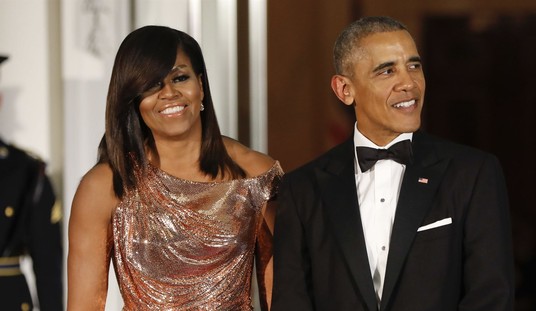Imagine this scenario. You are an elected representative of Congress and a pamphlet has been produced in your name on a monthly basis for three decades. It’s been written in the first person and makes frequent reference to your family and other biographical details. You admit to being aware of its existence. Do you a) attempt to have its publication stopped for fear of how it might damage your reputation; b) oversee every aspect of its production to ensure its vicarious fidelity to your own opinions and style of expressing them; c) take only a passing interest in its contents?
Ron Paul would have us believe c) is as convincing as a return to the gold standard. He said he doesn’t know who wrote the now-notorious newsletters that James Kirchick painstakingly exposed and reprinted in the New Republic last week-they were titled Ron Paul’s Freedom Report, Ron Paul Political Report, The Ron Paul Survival Report-but it sure as hell wasn’t him and he’d been over this before, when he ran for the House of Representatives in 1996 and a few choice selections from the newsletters found their way into the Texas press.
Thus it might have been breaking news to the rest of the country that a candidate for president was associated with literature that called Martin Luther King a gay pedophile, blamed the 1993 World Trade Center bombing on Israeli spies, and depicted AIDS victims as extras out of the film 28 Days Later-but Paul had long ago put the whole sordid affair behind him. Why we were dwelling on the past?
In an interview with CNN’s Wolf Blitzer, Paul said he did read some of this eponymous fanzine throughout its three-decade run, but-wouldn’t you know it-he managed to miss all the editions that trafficked in bigoted filth until someone else brought them to his attention. And despite rumors in the blogosphere that the gothic typist was Lew Rockwell –Paul’s former chief of staff and founder of the Ludwig von Mises Institute, the Confederacy-friendly think tank that put out Paul’s (confirmed) books– told Kirchick that “seven or eight freelancers involved at various stages” were instead responsible. Moreover, the “person who was in charge [of editing the newsletters] is now long gone … He left in unfortunate circumstances.” (Would anyone have anticipated the calm silence with which the 9/11 conspiracy theorists supporting the gynecologist have greeted Rockwell’s bureaucratic evasions?)
The online archive of what is now known as The Ron Paul Freedom Report-a much-watered-down edition of what Kirchick uncovered-bears this disclaimer on its still-active homepage: “Congressman Ron Paul is no longer affiliated with or associated in any way with The Liberty Committee of Falls Church, Virginia. If you receive a solicitation from The Liberty Committee and/or its chairman, Mr. David James, bearing Congressman Paul’s name, please be advised that the solicitation was in no way approved or endorsed by Congressman Paul.”
No mention of when it became unaffiliated or why David James is allowed to carry on publishing this document without Paul’s imprimatur. How long would the Barack Obama Audacity of Hope Leaflet stay afloat under similar circumstances?
In general, Paul’s handling of this devastating scandal is a fair indication that he is unfit to be a notary public of a panhandle backwater, much less President of the United States. If he has not grasped the simple fact that serious doubts have been raised as to his character, and that he now owes it to potential voters to uncover the provenance of old and noxious forgeries of his beliefs, then his arrogance eclipses that of any mainstream candidate. (Those throwing their weight behind the congressman because he promises to free the republic of the tyranny of constitution-flouting megalomaniacs can look forward to “That’s ancient history,” or “Been there, done that” as answers to tough questions that will undoubtedly arise in a Paul administration.)
Indeed, quite apart from the salacity of the old newsletters, Paul’s unaccommodating response to them has shown him to be a pathological enemy of moral judgment and good sense.
A common refrain of his apologists is that nothing in the excavated hate-rags sounds at all like their man. While one may not agree with Paul’s plans to abolish the Federal Reserve or withdraw all U.S. troops from foreign soil, they argue, one has to admit that Paul puts his case for these policies rationally and without resorting to black helicopter-type hysterics.
In some instances, however, the newsletters conform to this justification. Consider this almost unnervingly controlled notice about David Duke’s Louisiana primary victory in November 1990:
“David Duke received 44% of the vote in the Senate primary race in Louisiana, 60% of the white vote, and 9% of the black vote!. This totaled 100,000 more votes than the current governor when he won.
[…]
Duke’s platform called for tax cuts, no quotes, no affirmative action, no welfare, and no busing. “Tonight we concede the election,” he said, “But we will never concede our fight for equal rights for all Americans.”
To many voters, this seems like just plain good sense. Duke carried baggage from his past, but the voters were willing to overlook that. And if he had been afforded the forgiveness an ex-communist gets, he might have won.
Liberals like Richard Cohen of the Washington Post say he got so many votes because Louisianians were racists and ignorant. Baloney.
David Broder, also of the Post, and equally liberal, writing on an entirely different subject, had it right: “No one wants to talk about [race] publicly, but if you ask any campaign consultant or pollster privately, you can confirm the sad reality that a great many working-class and middle-class white Americans are far less hostile to the rich and their tax breaks than they are to the poor and minorities with their welfare and affirmative-action programs.”
Liberals are notoriously blind to the sociological effects of their own programs. David Duke was hurt by his past. How many more Dukes are there waiting in the wings without such a taint?”
There are no raving redneck sermons here-only sinister rationalizations for them. (In a slightly different context, and forgetting who the subject was, we might have seen such a contrarian squib in the pages of The New Republic.) That early reminder that 9% of blacks actually turned out for a former grand wizard of the KKK is meant to downplay Duke’s racist appeal-“baggage from his past”-and suggest that, in every other respect, he was seen as a viable candidate by even the least likely demographic. Similarly, the analogy between Duke and an ex-communist running for public office hints at an understanding of his controversial past, which the author is, to all outward appearances, reluctant to embrace. (Paul has argued that his convictions prevent him from being a racist because racism, like communism, is a “collectivist” enterprise.) The writer also credits the liberal David Broder in order flout the conventional wisdom about race discourse in America. Besides, Duke has got more interesting things to talk about than white supremacy-“tax cuts, no quotes, no affirmative action, no welfare, and no busing.”
Duke has recently returned the favor to Paul by writing on his website:
…I like Ron Paul’s campaign, and I think it is good for America and the political process. Why do I think so? It is because people such as Ron Paul shake up the system, and Paul takes a lot of correct positions such as opposition to the Iraq War, opposition to foreign aid to Israel and the rest of the world, as well as having unrelenting support for the civil liberties of the American people. Second, what I will say here cannot hurt the campaign in the liberal media because I will now offer some criticisms showing that I think that Ron Paul does not do enough to defend the heritage and interests of European Americans.
If such partial alliances of principle move in one direction, they can surely move in the opposite. Let us say that Ron Paul does not harbor an antipathy against blacks and Jews. Is it beyond plausibility that, as a libertarian dogmatically opposed to entitlement spending and foreign interventionism, he would stoop to make common cause with someone opposed to them, too, yet who does harbor such antipathy? And which is worse for someone purporting to be the only straight shooter vying for the White House?
Paul has not been helped by earlier weasel defense of accepting campaign contributions from various neo-Nazis outfits, such as Stormfront. He claimed then also-as he does now with respect to the patrons of his newsletter-that it is not in his laissez-faire nature to regulate human behavior. Duke had his “taint,” after all, and the others “Ronulans” must have theirs. From here it is not a far trip down the long slide into excusing demagogic cracks about gays, Jews, and the “sociological effects” of welfare as serving a deeper ideological kinship.
A latent political crisis became blatant last week. Not for the sake of a poorly timed cover story were the editors of Reason made so uncomfortable by the newsletter disclosures, or by Paul’s blithe reaction to them.
Libertarians have been for decades sidelined and lampooned as kooks willing to take theoretical purity to absurd practical extremes. A fine movement if, like P.J. O’Rourke, you don’t mind running into the ubiquitous “high school algebra teacher who wants to talk about privatizing the sidewalks for an hour.” But many well-meaning small government types have in the process grown desensitized to fellow travelers bearing seedy agendas. The corollary of Ann Althouse’s observation that Paul always seemed to her to be masquerading as a libertarian in order to advance his racism, it is that racists can masquerade as libertarians in order to confer an aura of legitimacy upon themselves.
Only one side in this creepy dysfunctional marriage has an interest in filing for divorce.
(Art credit: The Velvet Howler)
Michael Weiss is Pajamas Media New York editor. His own blog is SnarkSmith.









Join the conversation as a VIP Member